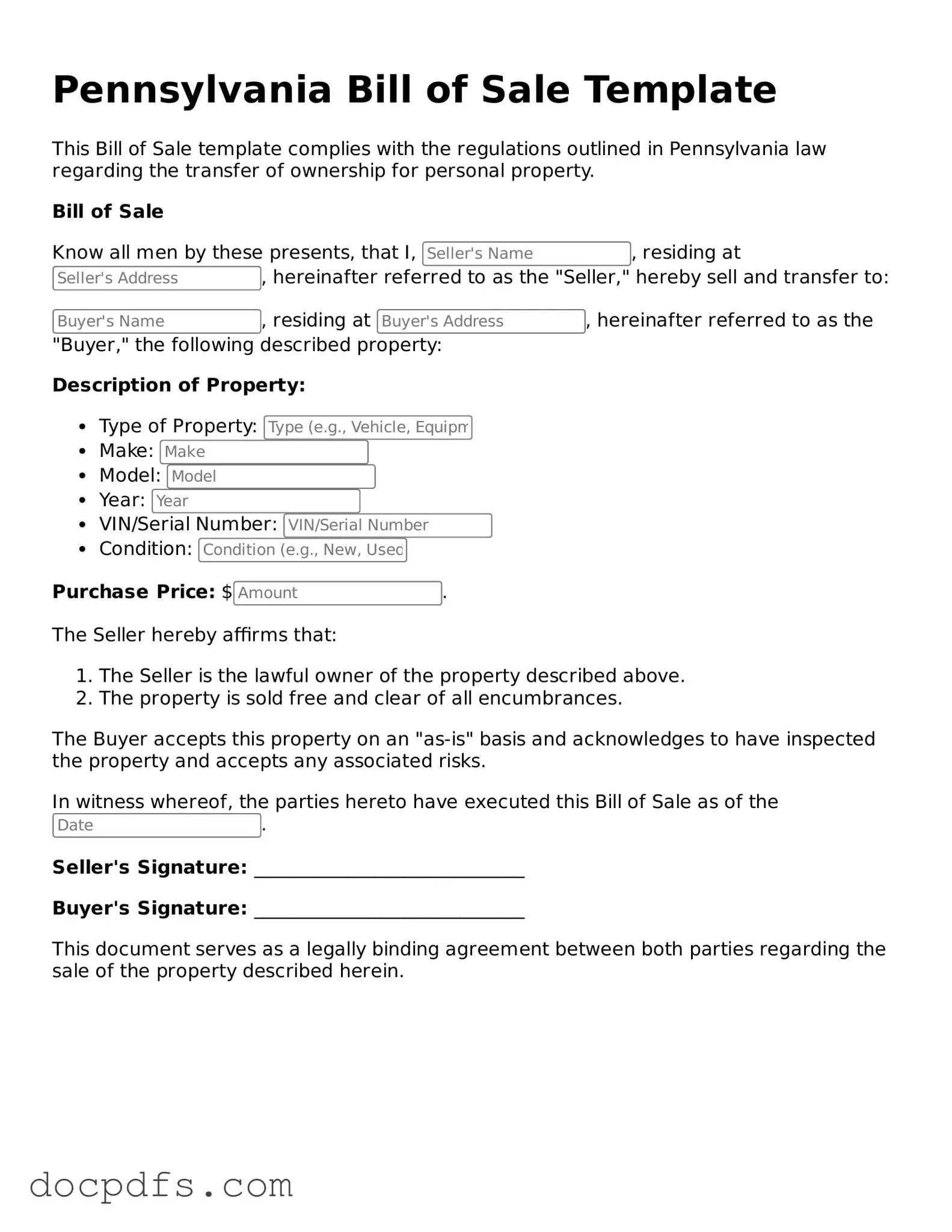Free Pennsylvania Bill of Sale Form
A Pennsylvania Bill of Sale form is a legal document that serves as proof of the transfer of ownership of personal property from one party to another. This form is essential for ensuring that both the buyer and seller have a clear record of the transaction. Understanding how to properly complete and use this form can protect your interests in any sale or purchase.
Open Bill of Sale Editor Now

Free Pennsylvania Bill of Sale Form
Open Bill of Sale Editor Now

Open Bill of Sale Editor Now
or
⇓ Bill of Sale
Finish this form the fast way
Complete Bill of Sale online with a smooth editing experience.